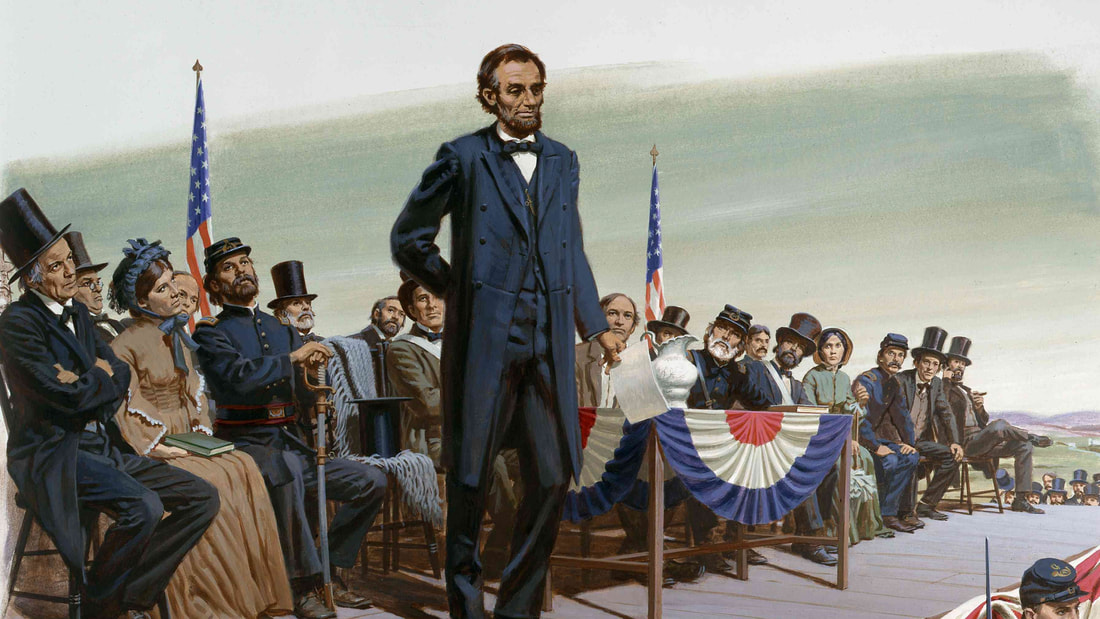|
Those in attendance at Lincoln’s November 1863 short address after acclaimed orator Edward Everett’s long speech were disappointed and Lincoln himself described his remarks as a “wet blanket.” After his assassination, presumably by Radical Republicans who wanted him out of the way, Lincoln’s apotheosis began. “General Donn Piatt, who traveled with Lincoln during his campaign and knew Lincoln perhaps as well as any man: “When a leader dies all good men go to lying about him. Abraham Lincoln has almost disappeared from human knowledge. I hear of him, I read of him in eulogies and biographies, but fail to recognize the man I knew in life . . . Lincoln faced and lived through the awful responsibility of war with a courage that came from indifference.” Ward Lamon, intimate friend of Lincoln and his United States Marshal for the District of Columbia, and Colonel in the Secret Service; Historian Shepherd of Baltimore; W.H. Cunningham of the Montgomery (Missouri) Star, who sat right behind Lincoln at Gettysburg, all agreed and publicly stated that the speech published was not the one delivered by Lincoln . . . [B]oth Edward Everett and [Secretary of State William] Seward expressed their disappointment and there was no applause; that Lincoln said: “Lamon, that speech was like a wet blanket on the audience. I am distressed by it.” These gentlemen who heard the speech all say that the speech delivered was not the one which has been so extensively printed. Even [Lincoln secretary John] Nicolay says: “It was revised.” William H. Herndon, under whom Lincoln began his law practice and longtime friend, wrote one of the first biographies of Lincoln, “Story of a Great Life,” but because of its frankness in unfolding the life of Lincoln it was bought up and suppressed. It was republished some years later, much modified . . . [Ward] Lamon, in his “Life of Lincoln,” said: “The ceremony of Mr. Lincoln’s apotheosis was planned and executed after his death by men who were unfriendly to him while he lived. Men who had exhausted the resources of their skill and ingenuity in venomous distractions of the living Lincoln were first after his death to undertake the task of guarding his memory, not as a human being, but as a god. Among those participating in the apotheosis Lamon names Seward, Edwin Stanton, Thad Stevens and Charles Sumner.” Lincoln’s Revised Gettysburg Address | Circa1865 (Two Presidents: Abraham Lincoln, Jefferson Davis, The Naylor Company, 1973, pp. 78-79) The piece was previously published at Circa1865.
4 Comments
|
AuthorBernard Theursam is an architect from Wilmington, North Carolina. Though he was born in New York, there is no better Southerner anywhere. He frequently shares with others gems from his immense library of materials about good Confederates and bad Yankees. Archives |
Proudly powered by Weebly

